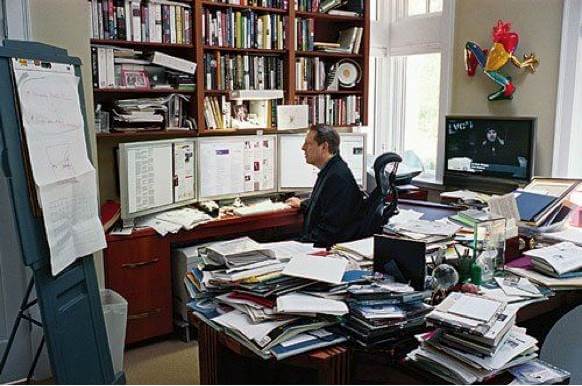In the Lean world we are all familiar with the metaphor of water as inventory and rocks as problems. And we’ve got pretty good at reducing these rocks for production. But why don’t we try to reduce the rocks that stop us from doing the work we should be doing. Those emails, lousy meetings, the constant interruptions, the slow IT systems, the paperwork, those reports that nobody reads and so on and so on… arrrggh! It often feels like we’re drowning in a sea of wasted time.

Dan Markovitz has come to rescue with a simple challenge – The Factory of One. Here he argues that we should approach our own work like we approach problem solving in the factory. He challenged the people in the workshop to answer these two simple questions about our weekly activities:-
- What is value?
- What is waste?
When we started to think through what percentage of our time in a day is spent on value adding activities, it gets a bit scary. The consensus from the people in the room today was that, if the answer was 20%, then you were doing exceptionally well!
Luckily, Dan has spent a lot of time thinking about how we can apply Lean concepts to our own work and talked through a number of strategies we can use.
- Improve communication. Most of the waste in an office environment comes from poor communication. Here we can apply the same thinking as first pass yield in a production environment. How often do we receive – or send – information that is 100% accurate and 100% complete? And how many emails do we receive that are actually questions about emails that we have sent? If we start to build-in quality into our communications, then we will see a significant reduction in unnecessary emails. How great would that feel?
- 5S information. In an office, information is the work. 5S here applies to how we deal with this information. Our workspace should be just that – a space for work. Not the dumping ground for clutter and things we would like to do but don’t get round to. Here, once we’ve cleared our space and set-up a specific in-tray for information coming in, Dan advises us to organise and store documents on the basis of frequency and predictable retrieval. If we need a report every Tuesday then it needs to be close at hand for rapid retrieval. File anything else that we don’t use frequently away as Reference, outside of our immediate workspace.
- Deal with incoming information strategically. This is especially useful for all those incoming emails. Here Dan advocates the use of the 4Ds :-
- Dump it – if it’s not important, delete it. Yes, you have permission
- Delegate it– if there is someone else who has more time or is better suited to deal with it, then delegate it
- Do it – assess whether it’s a quick task, then just do it
- Designate – if it’s something which will take longer to do, schedule it in your calendar for a specific time for you to do. And make time to do it.
- Create standard work: We can use this to create predictability in our day. This isn’t about scheduling every minute of every day but creating reminders – preferably through visual systems – to flag the important things that need to get done on daily, weekly or monthly basis.
- Improve flow: Multi-tasking is a lie! It can take us 40% or more extra time to do each task if we’re constantly switching between them. It also impacts on the quality of our work. So yes, turn off those emails alerts and instead schedule in a couple of times a day only to deal with your inbox.
So thanks Dan. You have definitely helped me think about how I start to apply Lean to my work and do things in a more value-adding way.